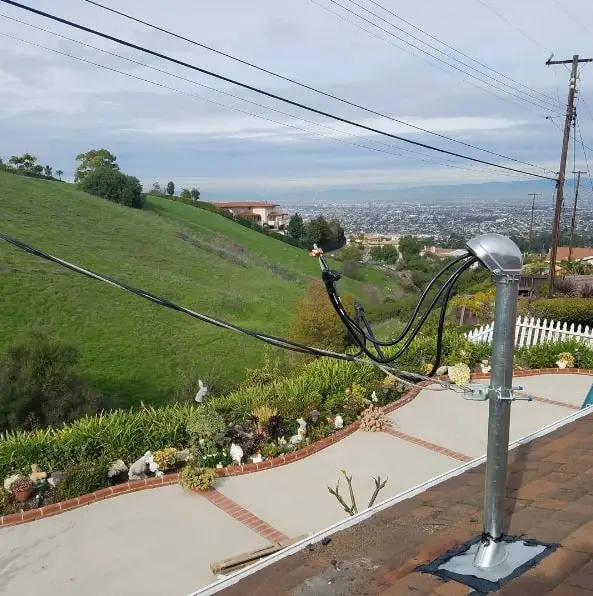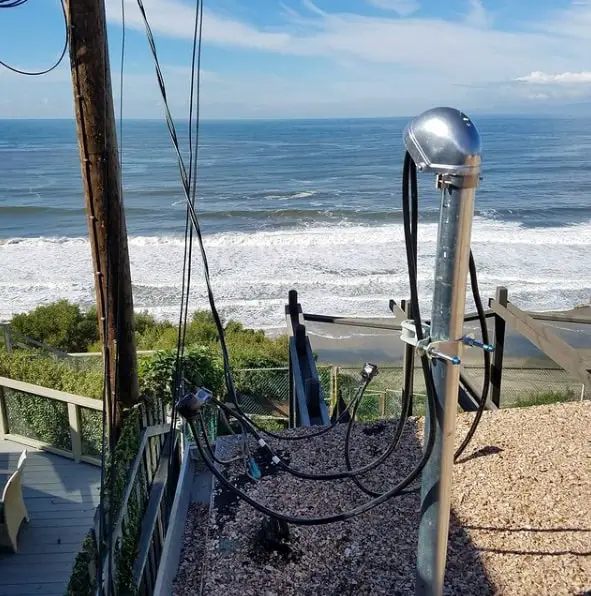Salary, Job Description, How To Become One, and Quiz
.jpg)
Electricians
Electricians install, maintain, and repair electrical wiring, equipment, and fixtures and ensure that their work is in accordance with relevant codes.
Table of contents
What they do
Electricians install, maintain, and repair electrical wiring, equipment, and fixtures and ensure that their work is in accordance with relevant codes.
- Plan layout and installation of electrical wiring, equipment, or fixtures, based on job specifications and local codes.
- Connect wires to circuit breakers, transformers, or other components.
- Test electrical systems or continuity of circuits in electrical wiring, equipment, or fixtures, using testing devices, such as ohmmeters, voltmeters, or oscilloscopes, to ensure compatibility and safety of system.
- Use a variety of tools or equipment, such as power construction equipment, measuring devices, power tools, and testing equipment, such as oscilloscopes, ammeters, or test lamps.
Typical day
On a daily basis, Electricians repair or replace wiring, equipment, or fixtures, using hand tools or power tools. They use a variety of tools or equipment, such as power construction equipment, measuring devices, power tools, and testing equipment, such as oscilloscopes, ammeters, or test lamps.
A typical day for an Electrician will also include:
- Place conduit, pipes, or tubing, inside designated partitions, walls, or other concealed areas, and pull insulated wires or cables through the conduit to complete circuits between boxes.
- Assemble, install, test, or maintain electrical or electronic wiring, equipment, appliances, apparatus, or fixtures, using hand tools or power tools.
- Connect wires to circuit breakers, transformers, or other components.
- Plan layout and installation of electrical wiring, equipment, or fixtures, based on job specifications and local codes.
- Test electrical systems or continuity of circuits in electrical wiring, equipment, or fixtures, using testing devices, such as ohmmeters, voltmeters, or oscilloscopes, to ensure compatibility and safety of system.
Other responsibilities
Besides their typical day, Electricians also install ground leads and connect power cables to equipment, such as motors. They may also construct or fabricate parts, using hand tools, according to specifications.
On a weekly to monthly basis, Electricians perform physically demanding tasks, such as digging trenches to lay conduit or moving or lifting heavy objects. They might also diagnose malfunctioning systems, apparatus, or components, using test equipment and hand tools to locate the cause of a breakdown and correct the problem.
In addition, they connect wires to circuit breakers, transformers, or other components.
Although specific duties may vary, many of them perform business management duties, such as maintaining records or files, preparing reports, or ordering supplies or equipment.
To some Electricians, it is also their responsibility to fasten small metal or plastic boxes to walls to house electrical switches or outlets.
What is the job like
Job satisfaction
Is this job meaningful
67% said they were satisfied with their job and 58% said they found their job meaningful.

I am a licensed residential, commercial, and industrial electrician with 20 years of experience. I also specialize in solar installations, repair, and maintenance.
My Typical Day
My typical work day usually starts by reviewing all our clients’ queries and preparing for any scheduled appointments.
The next activities depend on our clients’ needs. Our solar services are divided into four categories: Consultation, Discussion, Installation, and Repair/Maintenance.
The consultation stage is where we get to know our clients and find out their solar energy needs.
If everything goes well, we will move on to the discussion phase. Our team will review all details from the initial consultation. We will then create a project proposal and meet with the client to discuss it. To polish the project plan, we often visit the service area too.
Depending on the details of the project, the first two stages might take a day or two. Some days I am out in the field installing and repairing solar panels. Sometimes I work in the office for project proposals.
Leading a team of solar contractors requires a lot of technical skills, customer service skills, and accuracy. Our clients invested a lot in solar. We need to be efficient in our service to help them reap a higher ROI.
Pros
Electricians are essential
Electricity is essential for our daily lives. It doesn’t matter if you are at home, at work, or enjoying delicious food at a restaurant. All of us will need an electrician at one point in our lives. As an electrician, this means that you will be required to work for a long time. If you work hard and have enough experience in the field, you can make a decent living.
You don’t need a college degree
In most cases, electricians don’t need a college degree. There is no need to take out huge student loans or read a lot of books. However, that doesn’t mean electricians cannot read, write and pass certain tests. While a college degree is not required, licenses and certifications are. Aspiring electricians can opt for an apprenticeship where they get hands-on training and experience before they qualify for a journeyman or a master electrician license.
It is not boring
Being an electrician is never boring. Electricians are highly skilled trade workers. We don’t repeat the same task every day. I, myself, don’t do routine work every single day. Some days I am out in the field repairing, installing, or maintaining electrical equipment in residential areas or business offices. Sometimes I need to be at the office to plan different projects for different clients with different needs. This job is great for anyone who enjoys challenges and doesn’t like to stick to a routine.
Cons
Training and licensing can take many years
While we don’t need to spend four years at college, apprenticeship requires around four to five years of on-the-job training and experience before we are eligible for an electrician license. We get paid as an apprentice electrician so it is still worth the effort.
This is not a 9 to 5 job
Being an electrician is challenging. You can’t come to work at nine o’clock in the morning and expect to return home at five o’clock in the afternoon. You might have to brave the rainstorms in the middle of the night to restore power to a neighborhood. Sometimes you might be assigned to other states to assist nearby electricians who are overwhelmed with their work. You must be flexible with your time.
It’s also physically demanding. Expect to climb into dark places, reach high up onto roofs and perform a lot of standing, bending, and reaching overhead. You’re always on the move, so you must be mentally and physically healthy if you plan to become an electrician.
Pros
Suitable for people who like practical and hands-on work.
Suitable for people who like practical and hands-on work.
Suitable for people who want independence and like to work on their own and make decisions.
Suitable for people who want independence and like to work on their own and make decisions.
It is not too difficult to get into this career. Previous work-related skill, knowledge, or experience is required to get started.
It is not too difficult to get into this career. Previous work-related skill, knowledge, or experience is required to get started.
Good salary (earns more than 50% of the careers out there).
Good salary (earns more than 50% of the careers out there).
Normal working hours (40 hours per week).
Normal working hours (40 hours per week).
Cons
Not suitable for people who like to help and teach others.
Not suitable for people who like to help and teach others.
How much do they make
Average salary
Average hourly wage
Entry-level Electricians with little to no experience can expect to make anywhere between $33,810 to $42,790 per year or $16 to $21 per hour.
| Salary by experience | Annual | Hourly |
|---|---|---|
| Highest (Top 10%) | $98,720 | $47 |
| Senior (Top 25%) | $75,380 | $36 |
| Median | $56,900 | $27 |
| Junior (Bottom 25%) | $42,790 | $21 |
| No experience (Bottom 10%) | $33,810 | $16 |
This table shows the top 10 highest paying industries for Electricians based on their average annual salary.
| Salary by industry | Annual | Hourly |
|---|---|---|
| Natural Gas Distribution | $106280 | $51.09 |
| Land Subdivision | $99780 | $47.97 |
| Technical and Trade Schools | $93260 | $44.84 |
| Promoters of Performing Arts, Sports, and Similar Events | $93230 | $44.82 |
| General Merchandise Stores | $88970 | $42.77 |
| Motion Picture and Video Industries | $83460 | $40.13 |
| Educational Support Services | $79240 | $38.10 |
| Aerospace Product and Parts Manufacturing | $79010 | $37.99 |
| Computer and Peripheral Equipment Manufacturing | $78250 | $37.62 |
| Electric Power Generation, Transmission and Distribution | $77930 | $37.46 |
View more salary by industries here.
Where can they work
Where can Electricians work? Here is a table showing the top 10 largest employers of Electricians including the average salary in that industry.
| Employers | Total Employed | Annual Salary | Hourly Wages |
|---|---|---|---|
| Building Equipment Contractors | 477560 | $60730 | $29.20 |
| Employment Services | 21160 | $54500 | $26.20 |
| Local Government | 13780 | $71470 | $34.36 |
| Utility System Construction | 11290 | $64830 | $31.17 |
| Nonresidential Building Construction | 9710 | $63280 | $30.42 |
| Electric Power Generation, Transmission and Distribution | 7250 | $77930 | $37.46 |
| Colleges, Universities, and Professional Schools | 5590 | $65530 | $31.51 |
| Federal Executive Branch | 4990 | $61700 | $29.66 |
| Motor Vehicle Manufacturing | 4950 | $68490 | $32.93 |
| Ship and Boat Building | 4730 | $55770 | $26.81 |
What is the work day like
Working hours
Working schedule
How often do you use email in this job?
Telephone
How often do you have telephone conversations in this job?
Group discussions
How often do you have group discussions in this job?
Public speaking
How often does this job require you to do public speaking?
Level of competition
How much competitive pressure is in this job?
What is the work environment like
Office-style environment
Indoors in an environmentally controlled condition
Warehouse-style environment
Indoors in a non-controlled environmental condition such as a warehouse
Outdoors
Outdoors exposed to all weather conditions
Outdoors – Under Cover
Outdoors but under cover (e.g. structure with roof but no walls)
How to become one
Difficulty to become one
Required level of education
What level of education do you need to perform the job?
Relevant majors
Electrician
Relevant work experience
How much related work experience do you need to get hired for the job?
On The Job Training
How much on the job training do you need to perform the job?
Should you become one
Best personality type for this career
People with this personality type likes practical and hands-on work. They prefer working with plants, animals, and real-world materials like wood, tools, and machinery.
People with The Builder personality type likes practical and hands-on work. They prefer working with plants, animals, and real-world materials like wood, tools, and machinery.
People with The Thinker personality likes to work with ideas that require an extensive amount of thinking. They prefer work that requires them to solve problems mentally.
People with The Artist personality likes to work with designs and patterns. They prefer activities that require self-expression and prefer work that can be done without following a clear set of rules.
People with The Helper personality type likes to work with people and in teams. They prefer work that allows them to build relationships with others.
People with The Leader personality likes to start and work on projects. They also like leading people and making many decisions.
People with The Organizer personality type likes to follow set procedures and routines. They prefer working with data and details more than with ideas.
You can read more about these career personality types here.
People who are suitable for this job tend to like work activities that include practical, hands-on problems and solutions. They like working with plants, animals, and real-world materials like wood, tools, and machinery.
They also like working with ideas and require an extensive amount of thinking. They like searching for facts and figuring out problems mentally.
Take this quiz to see if this is the right career for you.
Work Values
Which values are the most important to a person’s satisfaction for this job?
You are someone who is results oriented. You prefer work that allows you to utilize your skills and abilities while at the same time giving you a sense of accomplishment.
You are someone who values job security, steady employment, and good working conditions. You also prefer work that keeps you busy all the time with something different to do every day.
You are someone who values job advancement and leadership roles. You prefer work that receives recognition for the work you do and jobs that are looked up to by others in the company and your community.
You are someone who likes to provide a service to others. You prefer a work environment where you can work with your co-workers in a friendly non-competitive environment.
You are someone who values a company that stands behind their employees. You prefer a work environment where everyone is treated fairly and is being supported by the company.
You are someone who likes to work on your own and make your own decisions. You prefer work that requires little supervision and are allowed to try out your own ideas.
Don’t know which career to pursue?
Take the career quiz to find careers that match your personality type.
Take The Career Quiz


.jpg)




.jpg)
.jpg)
.jpg)
.jpg)
.jpg)
.jpg)
.jpg)
.jpg)
